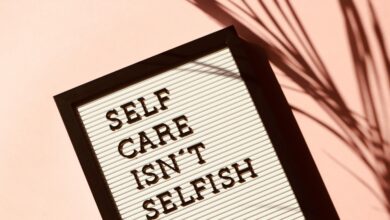The Best Books for Understanding Mental Health

Mental health is a complex and deeply personal topic, yet it affects everyone in some way. Whether you’re seeking to understand your own mental health struggles, support a loved one, or simply expand your knowledge, books can be an invaluable resource. They offer insights from experts, personal stories of resilience, and practical tools for managing mental well-being. In this article, we’ll explore some of the best books on mental health that cater to a variety of needs, from self-help guides to memoirs and scientific explorations.
1. The Body Keeps the Score by Bessel van der Kolk
Overview:
This groundbreaking book delves into the impact of trauma on the brain, mind, and body. Dr. Bessel van der Kolk, a renowned psychiatrist, explains how traumatic experiences can manifest physically and emotionally, often leading to conditions like PTSD, anxiety, and depression.
Key Takeaways:
- Trauma isn’t just a psychological issue; it affects the entire nervous system.
- Innovative therapies such as EMDR (Eye Movement Desensitization and Reprocessing) and yoga are explored as effective treatments.
- Practical advice on healing and reclaiming control over your life.
Why It’s Essential:
If you’re interested in understanding the science behind trauma and its long-term effects, this book provides both empathy and evidence-based solutions.
2. Lost Connections: Uncovering the Real Causes of Depression – and the Unexpected Solutions by Johann Hari
Overview:
Johann Hari challenges the conventional view that depression is solely caused by chemical imbalances in the brain. Instead, he argues that disconnection—from meaningful work, community, nature, and love—plays a significant role in mental health struggles.
Key Takeaways:
- The importance of addressing societal and environmental factors contributing to mental illness.
- Stories of individuals who found relief through reconnecting with their passions, communities, and natural environments.
- A call to rethink how we approach mental health treatment.
Why It’s Essential:
This book offers a fresh perspective on depression and encourages readers to look beyond medication for holistic solutions.
3. Maybe You Should Talk to Someone by Lori Gottlieb3. Maybe You Should Talk to Someone by Lori Gottlieb
Overview:
Part memoir, part exploration of therapy, this book follows therapist Lori Gottlieb as she navigates her own emotional challenges while treating patients. Through candid storytelling, she highlights the universality of human struggles and the transformative power of therapy.
Key Takeaways:
- Therapy is not just for those in crisis—it’s a tool for growth and self-discovery.
- Relatable anecdotes about common issues like grief, relationships, and identity.
- A reminder that vulnerability is a strength, not a weakness.
Why It’s Essential:
Gottlieb’s warm and humorous writing makes therapy accessible and relatable, reducing stigma around seeking help.
4. Daring Greatly by Brené Brown
Overview:
Brené Brown, a research professor and expert on vulnerability, explores the connection between shame, courage, and mental health. She argues that embracing vulnerability is key to living a wholehearted life.
Key Takeaways:
- Shame and fear hold us back from connecting authentically with others.
- Vulnerability fosters resilience, creativity, and deeper relationships.
- Practical strategies for cultivating courage and letting go of perfectionism.
Why It’s Essential:
For anyone struggling with self-doubt or feeling disconnected, this book offers actionable steps toward greater self-acceptance and fulfillment.
5. Anxiety-Free Kids: An Interactive Guide for Parents and Children by Bonnie Zucker
Overview:
Geared toward parents and caregivers, this interactive guide provides tools to help children manage anxiety. It includes activities, worksheets, and strategies tailored to different age groups.
Key Takeaways:
- Techniques like cognitive-behavioral therapy (CBT) explained in simple terms.
- How to identify signs of anxiety in children and address them effectively.
- Empowering kids to take charge of their thoughts and emotions.
Why It’s Essential:
This book is a must-read for parents navigating childhood anxiety, offering hands-on resources to build confidence and calm.
6. Feeling Good: The New Mood Therapy by David D. Burns
Overview:
A classic in the field of mental health, this book introduces readers to cognitive-behavioral therapy (CBT), a highly effective method for overcoming depression and anxiety.
Key Takeaways:
- Identifying and challenging negative thought patterns that fuel emotional distress.
- Step-by-step exercises to reframe unhelpful beliefs.
- Tools for improving mood and building resilience.
Why It’s Essential:
Dr. Burns’ clear explanations and practical exercises make CBT accessible to anyone looking to improve their mental well-being.
7. Reasons to Stay Alive by Matt Haig
Overview:
In this raw and heartfelt memoir, author Matt Haig shares his experience with severe depression and suicidal thoughts. He reflects on what kept him alive and offers hope to others facing similar struggles.
Key Takeaways:
- Honest accounts of living with mental illness and finding moments of joy.
- A list of “reasons to stay alive,” including small pleasures like music, books, and nature.
- Encouragement to seek help and believe in recovery.
Why It’s Essential:
Haig’s vulnerability and optimism provide comfort and inspiration to anyone battling dark times.
8. The Noonday Demon: An Atlas of Depression by Andrew Solomon
Overview:
This comprehensive exploration of depression combines personal narrative, historical context, and scientific research. Andrew Solomon examines the condition from multiple angles, offering a nuanced understanding of its causes and treatments.
Key Takeaways:
- Insights into the biological, cultural, and social dimensions of depression.
- Stories of individuals coping with depression across diverse backgrounds.
- A thorough review of available treatments, from medication to alternative therapies.
Why It’s Essential:
For readers seeking an in-depth analysis of depression, this book is both informative and compassionate.
9. Self-Compassion: The Proven Power of Being Kind to Yourself by Kristin Neff
Overview:
Kristin Neff, a pioneer in the study of self-compassion, explains why being kind to yourself is crucial for mental health. She contrasts self-compassion with self-esteem and shows how it leads to greater happiness and resilience.
Key Takeaways:
- The three components of self-compassion: mindfulness, common humanity, and kindness.
- Exercises to practice self-compassion in daily life.
- Why self-criticism harms mental health and how to break the cycle.
Why It’s Essential:
This book teaches readers to treat themselves with the same care they would offer a friend, fostering inner peace and acceptance.
10. Girl, Interrupted by Susanna Kaysen
Overview:
A powerful memoir detailing Susanna Kaysen’s time in a psychiatric hospital during the 1960s. Her reflections on mental illness, institutionalization, and societal perceptions of madness remain relevant today.
Key Takeaways:
- A candid look at borderline personality disorder and other mental health diagnoses.
- Questions about the line between sanity and insanity.
- Reflections on the stigma surrounding mental illness.
Why It’s Essential:
Kaysen’s lyrical prose and honest storytelling shed light on the complexities of mental health care and recovery.




